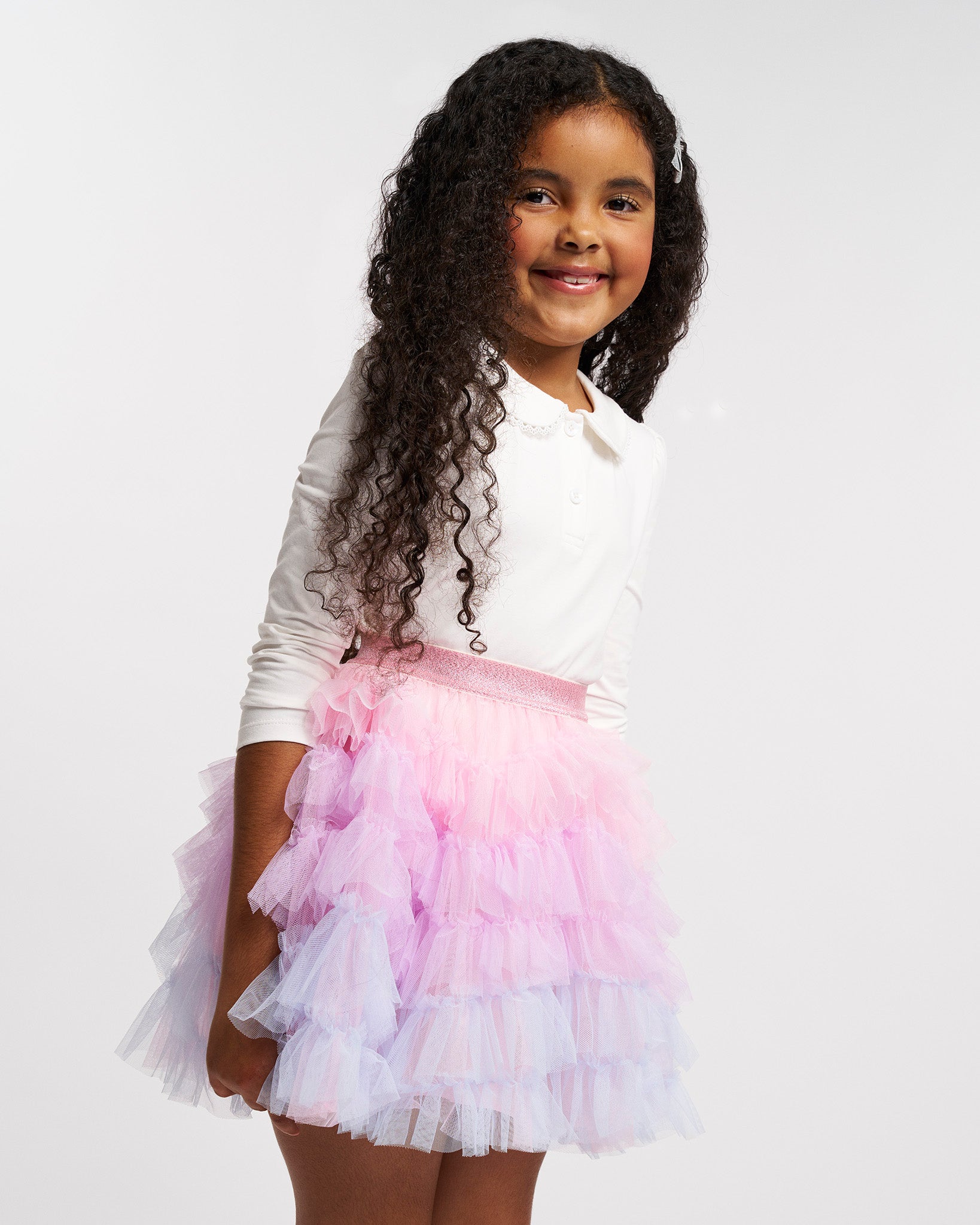7 Common Parenting Challenges
Table of contents
- 1. How to Deal with Toddler Temper Tantrums?
- 2. How to Get Your Child to Listen (without Yelling)?
- 3. How to Deal with Siblings Fighting All The Time?
- 4. Kids’ Screen Time: How Much Is Too Much?
- 5. How to Ease Your Child’s Separation Anxiety?
- 6. Why Are Routines Important for Toddlers?
- 7. How Can I Help My Toddler Learn to Share?
Once you become a parent, you feel like you’re thrown into the deep end without testing the waters first. Unfortunately, parenting doesn’t come with an official guidebook that you can pull out whenever things get sticky – sometimes quite literally! Instead, you figure everything out as you go, hoping everything will turn out for the best.
There are different types of parenting styles, but even if you decide on a particular one, you’ll still need to make some adjustments. Since there’s no manual on being a parent, you’ll need to find your own ways of dealing with distinct challenges. However, you can seek advice and learn from other parents to see whether it’ll work for you.
So, to help you become the type of parent your kids will be proud to have, the team at Stelle is taking a deep dive into some of the most common parenting styles and answering some of the most asked questions. You may not get strict guidelines from this blog, but you’ll surely get inspired to find the most suitable solutions for your child’s behavior.
1. How to Deal with Toddler Temper Tantrums?
Dealing with toddler temper tantrums can be challenging, but there are effective strategies to manage them. First, it's essential to stay calm and avoid yelling, as this helps model appropriate emotional responses for your child. Many parents who try to adopt an authoritarian parenting style believe that yelling can help when their little one experiences a tantrum. However, you can make the entire situation worse this way.
Moreover, if they exhibit aggressive behavior, intervene immediately and explain that while it's normal to feel angry, it's not okay to hurt themselves or others. This helps reinforce boundaries while showing that you're there to support them.
Lastly, remember that allowing your child to express their feelings can also be beneficial. They need to vent their frustrations without fear of punishment. Consistently reinforcing good behavior by clearly establishing boundaries and sticking to them is key.
Don’t forget that temper tantrums are a normal phase of development as kids learn to navigate their emotions. With patience and the right approach, you can help your little one manage their feelings more effectively, no matter the type of parenting style you decide to use.

2. How to Get Your Child to Listen (without Yelling)?
Many parents find it challenging to get their children to listen without yelling. Whether you’re dealing with temper tantrums, siblings fighting, or simple chore handling, getting your kid to follow your instructions can seem impossible.
So, if you're looking to get your child to listen without resorting to yelling, one effective approach is to keep your instructions simple. Children, especially those with anxiety or attention challenges, can become overwhelmed with multi-step commands. Instead of saying something like, “Go upstairs, put away your toys, brush your teeth, and pick up your clothes,” focus on giving one or two-step directions. This makes it easier for them to understand and follow through.
Another key tactic is to employ calm and direct communication. Look your child in the eye, say their name calmly, and provide the instruction, followed by "now." For instance, you might say, “Billy, go upstairs and brush your teeth now.” After giving the instruction, pause for 15 to 18 seconds. This waiting period helps maintain a calm atmosphere and gives your child time to respond without feeling rushed or pressured.
This type of handling a situation has characteristics of permissive parenting. It’s a way to get your child to do what you tell them, while using empathy, warmth, and most importantly, understanding.
Finally, remember that consistency is crucial. If your child follows the direction, be sure to praise their effort briefly. If not, calmly repeat the instruction. This permissive parenting method removes the drama from the interaction and helps establish a routine that encourages compliance. With practice, you’ll likely find that your child listens better, making life at home a lot more peaceful.

3. How to Deal with Siblings Fighting All The Time?
When siblings who are best friends start fighting, it’s not uncommon, and it can actually be a healthy part of growing up. If you notice your kids are constantly at each other’s throats, it’s helpful to identify any patterns in their disagreements. Perhaps they often bicker over toys, especially when they’re vying for your attention.
So, when you have to deal with siblings fighting, you might believe that you have to adopt some sort of authoritarian parenting to make the disagreements stop. Nonetheless, you should take into account that it’s the approach to the problem that matters, not the parenting style.
Understanding the root cause can help you address potential conflicts before they escalate. This is part of authoritative parenting. It requires you to be clear with your kids that while you trust them to resolve minor issues on their own, you’re there to help if things get out of hand. That is, teaching appropriate responses when dealing with siblings fighting, like asking for your help instead of retaliating, can go a long way in managing disputes.
In addition to setting up some basic rules, like taking turns or sharing toys for a set amount of time, it’s also important to recognize and praise positive interactions. Whenever you see them playing nicely or sticking to the agreements they made, give them a shout-out for it! In a way, this is a way to establish strong authoritative parenting rules and obtain harmony between your children.

4. Kids’ Screen Time: How Much Is Too Much?
Screen time is one of the most challenging debates among parents! When discussing screen time, it’s important to consider different parenting styles, like permissive parenting and authoritarian parenting. For instance, permissive parents might allow more screen time without strict rules, while authoritarian parents often impose stricter limits.
However, experts recommend zero screen time for kids under 2, an hour for ages 2-5, and two hours for those aged 5-17, unless they're doing homework. It’s also good to keep screens out of bedrooms and avoid them before bedtime to help kids relax. Finding positive activities to fill free time is a great way to manage screen limits, no matter whether you’re incorporating permissive, authoritarian, or authoritative parenting!

5. How to Ease Your Child’s Separation Anxiety?
Handling separation anxiety can be quite a challenge for both kids and parents. It’s tough for us to leave our little ones, especially when they cling to our legs and plead for us not to go. While we often hear that children typically stop crying shortly after we leave, it’s hard not to feel like we’re failing when we see those sad faces.
When it comes to kids at different developmental stages, there are a few things to keep in mind. Infants usually start showing signs of separation anxiety around 4 to 9 months when they realize you’re really gone. For toddlers, this anxiety often kicks in at about 15 to 18 months, especially when they’re tired, hungry, or sick. Finally, by age 3, preschoolers understand how their behavior impacts us and start testing boundaries.
To help your child cope with separation anxiety, try creating a quick goodbye routine, like a special wave or a few kisses, to make departures short and sweet. Being consistent with the drop-off time and ritual can really help, so aim for the same routine each day. When it's time to say goodbye, give your full attention and affection, then leave quickly, even if they seem upset. Make sure to keep your promises about returning, as this builds trust and confidence in your child. Talk to them about your return in terms they understand, like using "sleeps" instead of days. Lastly, practice being apart by arranging playdates or sending them to family for short periods before school starts, so they get used to the idea of being away from you.

6. Why Are Routines Important for Toddlers?
Familiar activities can really help both kids and adults feel more at ease during tough times. Children thrive on predictable routines, which make them feel safe and in control. No matter the parenting styles you’re using, routines are essential when it comes to the development of a child in every stage.
So, establishing consistent routines for sleep, meals, and play is vital for toddlers. This means you need to ensure your child gets sufficient sleep, ideally around 12 hours a day, along with regular naps and a calming bedtime routine. Well-rested children are less likely to have tantrums and are more inclined to eat healthily, which supports their energy levels.
When it comes to eating, you should maintain structured meal times despite any phases of fussy eating. Minimize snacking and provide water to encourage good hydration without high-calorie drinks. For playtime, children thrive when they feel secure and can play independently, but they also need your engagement.
When a child knows what is about to happen throughout the day, they are calmer and happier.

7. How Can I Help My Toddler Learn to Share?
When teaching toddlers to share, it’s essential to advocate for them and acknowledge their feelings. You can say things like, "Annie is using this toy now, but she’ll let you have a turn when she’s done," while also recognizing their frustration with sharing. Encouraging turn-taking helps kids learn patience, so you might say, "It’s Lily’s turn - let’s find something fun to do while we wait."
Modeling sharing at home and narrating situations can help kids understand better. Instead of forcing them to share, guide them gently by pointing out their feelings and helping them empathize. Preparing your child for playdates by discussing toy choices beforehand can also reduce anxiety over sharing special items.

Looking for more support on your parenting journey? Explore Stelle for honest, relatable tips from other moms who’ve been there plus practical resources to help you parent with more confidence, clarity, and heart.














































































































































































































































































































































































